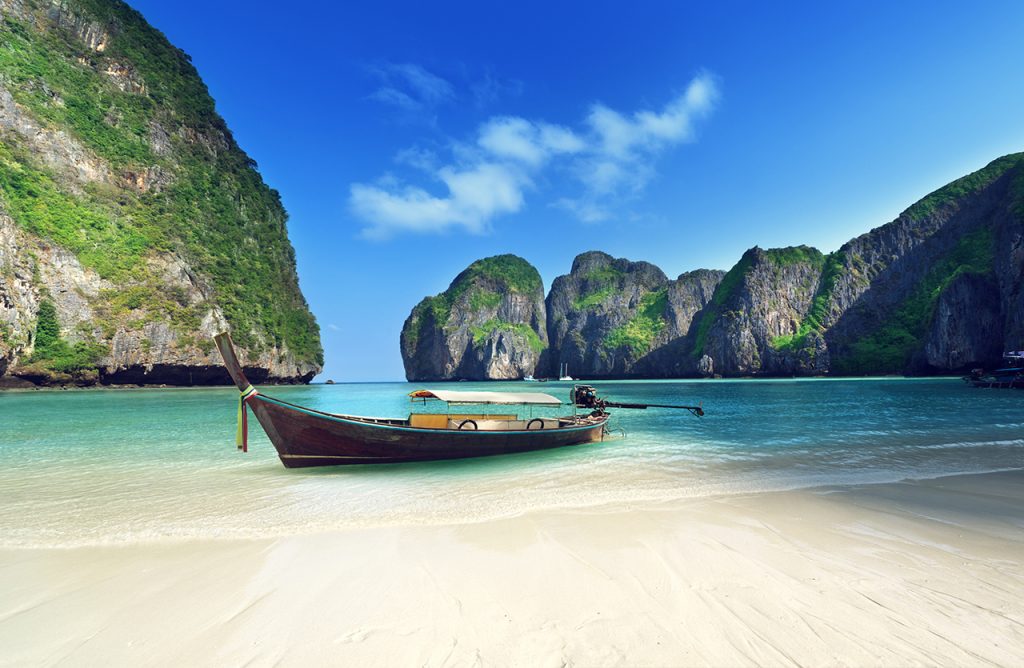
Maya Bay in the Phi Phi Islands is arguably one of Thailand’s most iconic destinations; a picture-perfect tropical scene made famous by the 2000 film The Beach, which starred Leonardo DiCaprio. Following the international popularity of the film, the real beach became a magnet for tourists, to the point where it had to be closed in 2018 due to damage and pollution. Now, with the ecosystem recovering well, officials plan to reopen one of Thailand’s natural wonders, possibly before the end of this year.
Plans for reopening are currently being guided by a team of environmental experts and advisors, who will ensure the return of tourists is sustainable and does not lead to the same crowding that caused the bay to be closed in the first place. These measures will also include strict regulations related to Covid-19 protocols, to ensure the health and safety of tourists is also taken into consideration.
The decision to close Maya Bay was taken in 2018, due to damage caused by boats and other impacts of over-tourism. In 2017, at the peak of its popularity, Maya Bay was inundated with an average of 5,000 daily visitors (more than double its capacity). In addition to trampling plants and leaving trash on the beach, these day trippers also came in speed boats that anchored in the bay; a habit that was catastrophic for the coral in these shallow waters. According to Thon Thamrongnawasawat, a marine biologist from Thailand’s Kasetsart University, there was only 8% of coral coverage left at that point.
Since 2018, Maya Bay has been closed to let the ecosystem recover. This process is already making progress. Black tip reef sharks have been spotted in the bay for the first time in years; a good indicator the area is returning to health. To give nature a helping hand, teams of divers have also seeded 20,000 fragments of coral in the bay. “It’s growing very well,” explained Thamrongnawasawat, in a recent interview with German media outlet Deutsche Welle (DW). “So we think that Maya Bay will return to be one of the very good coral reefs in maybe 5 to 10 years,” he added. His team hope to boost coral coverage to 50% within a decade, and to 60% in 15 to 20 years.
Thai authorities are planning to reopen the bay to tourists later this year, but are determined to learn from lessons of the past. Numbers will be capped, and boats will no longer be allowed to come directly into the bay; visitors will dock at a newly constructed pier on the other side of the island, then make the rest of the journey on foot. “The visitors will come in another way, so they will not touch Maya Bay anymore,” explains Songtam Suksawang, who is the former director of Thailand’s national parks department and now an adviser on the rejuvenation project.
With Maya Bay returning to health and soon ready to reopen after a long period of closure, it is hoped that Thailand’s tourism industry will also witness a similar turnaround in the months ahead.





